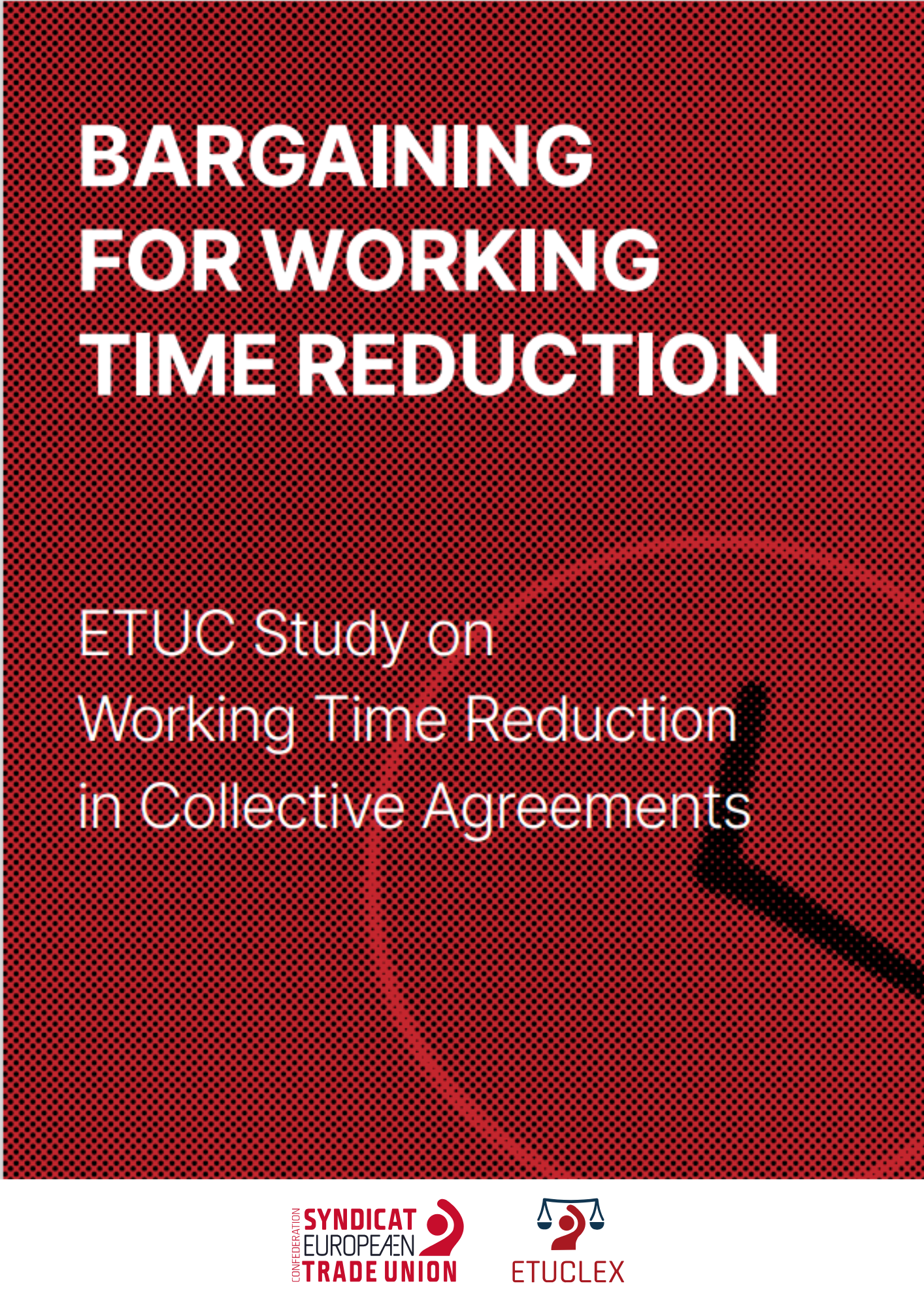
BARGAINING FOR WORKING TIME REDUCTION
ETUC Study on Working Time Reduction in Collective Agreements
The ETUC has published a new study on working time reduction in collective agreements. This expert study explores the renewed relevance of working time reduction (WTR) in today’s evolving world of work, with a particular focus on collective bargaining-led initiatives for reduced working hours with no loss in pay.
The study is divided into three chapters, each addressing key aspects: building a trade union narrative in support of working time reduction, mapping existing collective agreements from across Europe, and developing strategies for their negotiation and practical implementation.
Chapter 1: A trade union narrative for working time reduction
The first chapter makes the case for WTR building on three different perspectives: workers and trade unions; employers; and societal considerations. It offers an overview of existing research supporting WTR as a means to improve well-being, job quality, productivity, and socio-ecological outcomes. As such, it aims to equip trade unions with arguments and evidence about the advantages of reduced working hours.
Chapter 2: Working time reduction in collective agreements
This chapter analyses 119 collective agreements (CBAs) from across Europe that include working time reduction, mostly without a loss in pay. It demonstrates the diversity of approaches that exist across countries, sectors, and groups of workers. The study also includes five case studies from Belgium, Scotland, Sweden, Germany, and Italy, exemplifying different practical models of WTR.
Chapter 3: Negotiations and implementation of working time reduction
The final chapter offers strategic and practical guidance for negotiating WTR. It outlines key aspects, such as political momentum, awareness-raising, worker engagement, evidence-based advocacy, and long-term planning. It also discusses how to design WTR agreements, integrate them with existing policies, and measure their impact. The study concludes with recommendations to support trade union leaders and negotiators when bargaining for WTR.
The English version is available here.
The French version is available here.
